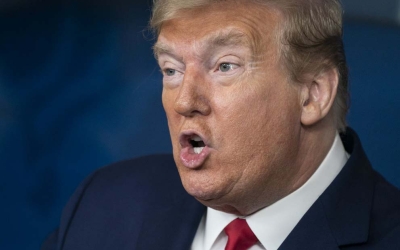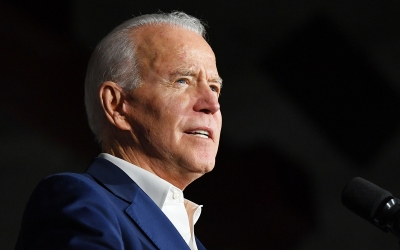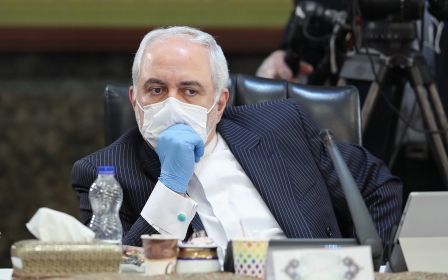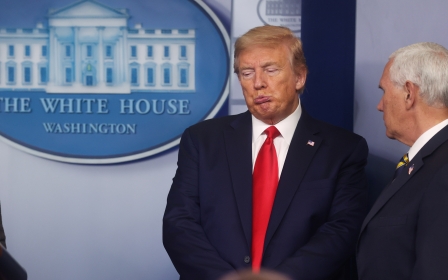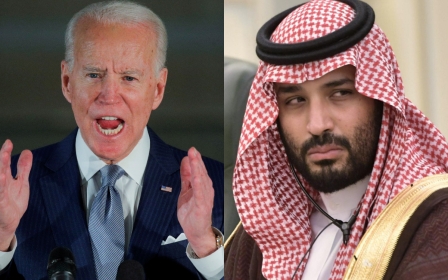Trump, Biden issue Ramadan blessings, but what are their records regarding Muslims?
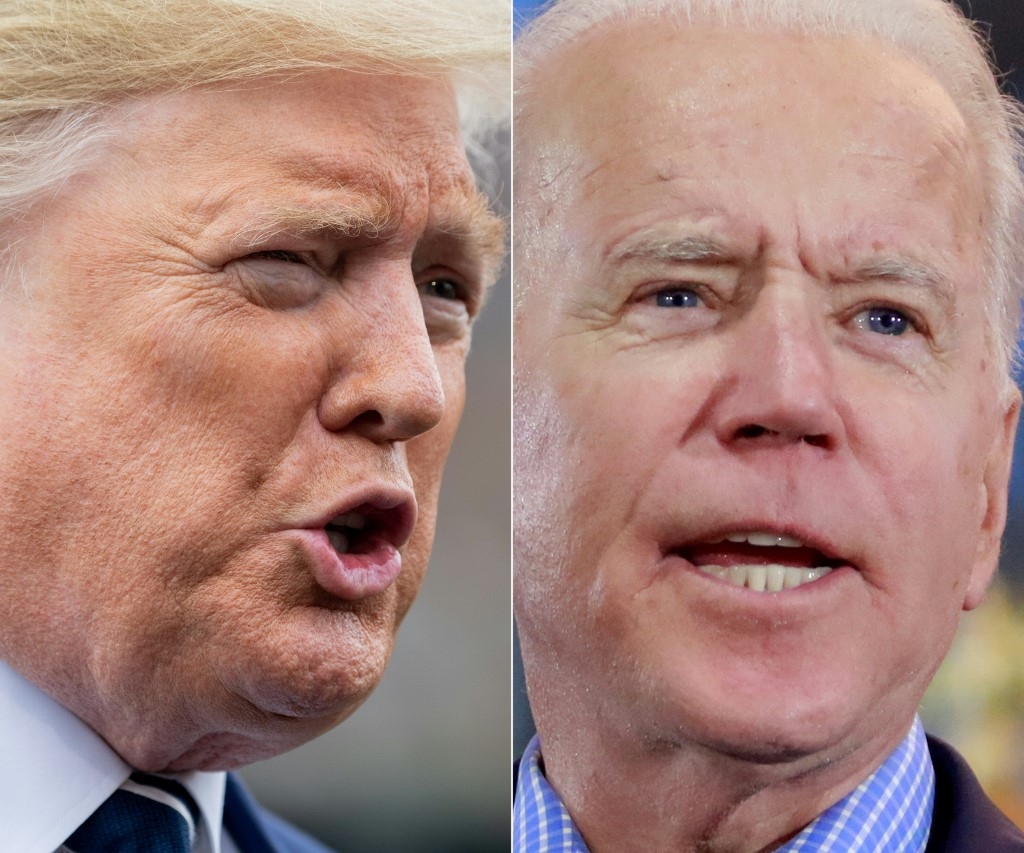
On the eve of the Islamic month of Ramadan, US President Donald Trump and his Democratic rival, former vice president Joe Biden, issued statements wishing Muslims a blessed month.
Still, in their political careers the two politicians have had sometimes lamentable records with Muslims, from engaging in unwarranted targeting to hateful rhetoric and hurtful policies against the faith community.
While Trump has been notably worse, leading the charge in discriminating against Muslims, Biden was complicit in many Obama-era policies, even if he was not in charge of the administration.
Now, with Muslims becoming a voting bloc in some key swing states, politicians have tried to reach out to gain their support.
Middle East Eye takes a look at both Trump's and Biden's statements, and how they illustrate their history of engaging with the Muslim community in the US.
Donald Trump
"I wish all Muslims, both in the United States and across the world, a blessed and peaceful Ramadan."
This past weekend, Trump reiterated a claim peddled on far-right social media that there "could be a difference" in how local authorities and politicians enforce coronavirus lockdown measures during the month of Ramadan.
Muslim groups condemned Trump's remarks, saying the president was stoking Islamophobia, and that the comments were "divisive" and "insulting".
"These acts are closely aligned with the universal values that the Islamic faith promotes—peace, kindness, and love and respect for others."
When asked by an MSNBC reporter if Islam was an inherently peaceful religion that's been perverted by a small number of followers, Trump responded: "Well, all I can say … there's something going on. You know, there's something definitely going on. I don't know that that question can be answered."
He added: "We are not loved by many Muslims".
The president also cited a poll, widely debunked, by an anti-Muslim group that indicated 25 percent of Muslims in the US believed that violence against Americans was justified.
"We have people out there that want to do great destruction to our country, whether it's 25 percent or 10 percent or 5 percent, it's too much," Trump said.
"Today, as the holy month of Ramadan commences, I pray that those who are observing this sacred time find comfort and reassurance in their faith."
Within the first week of being inaugurated into office, Trump issued an executive order barring immigration from seven predominantly Muslim countries, which after numerous iterations still remains in effect today.
He was following up on a campaign promise; on the campaign trail he called for a "total and complete shutdown" of Muslims coming into the country.
Middle East Eye has previously reported how the travel ban issued by the president has split families, left travellers stranded and forced loved ones to stay apart.
His administration also cut all funding to the UN's programme for Palestinian refugees and granted numerous concessions to Israel, including moving the US embassy from Tel Aviv to Jerusalem.
Joe Biden
"We have seen Muslims give generously to strengthen our communities and lift up the most marginalized among us. Above all, we have felt the sense of unity, joy, and deep reflection that this month creates for our Muslim friends and neighbors."
Joe Biden, as a part of former President Barack Obama's administration, was complicit in a government that continued some Bush-era targeting of Muslim communities in the US.
Under the Countering Violent Extremism (CVE) programme, many Muslims were subject to unwarranted surveillance and discriminatory policies.
A United Nations report published last month said that such "countering extremism" programmes were contributing to human rights violations.
While the former vice president did not initiate or lead these programmes, he did not try to stop them either.
"Bigotry and ignorance have always been with us — and I strongly believe that it is one of the chief moral responsibilities of our leaders to root out and allay those sentiments rather than fan the flames of hate."
Last year, it was revealed that within Biden's campaign team there was a supporter of Indian Prime Minister Narendra Modi, who's Bharatiya Janata Party has been pushing anti-Muslim sentiment, as well as passing legislation, including its Citizenship Amendment Act, openly discriminating against the Muslim minority population.
Earlier this year, MuslimMatters revealed that this staffer, Amit Jani, had become the campaign's Muslim outreach coordinator.
"During this month of reflection, my heart goes out to the millions of Muslim families around the world suffering conflict, oppression, displacement, and poverty — simply because of their faith — in China, in South Asia, across the Middle East, and elsewhere."
As a Delaware senator, Biden voted in favour of going to war with Iraq, a devastating military operation that led to the deaths of about a million Iraqis.
Obama's administration, which Biden took part in, extensively expanded the US military's drone program, launching more strikes than George W Bush's administration.
Drone strikes were cited by the administration as effectively terminating terrorists, though many led to civilian casualties as well in in Pakistan, Yemen, Afghanistan and Libya.
Again this is a similar case where Biden did not initiate the drone programme, yet as vice president he did defend the drone policy, saying it was effective in achieving US security goals.
"Jill and I wish Muslim families Ramadan Mubarak, and all our best wishes for the holy month ahead."
Middle East Eye propose une couverture et une analyse indépendantes et incomparables du Moyen-Orient, de l’Afrique du Nord et d’autres régions du monde. Pour en savoir plus sur la reprise de ce contenu et les frais qui s’appliquent, veuillez remplir ce formulaire [en anglais]. Pour en savoir plus sur MEE, cliquez ici [en anglais].


